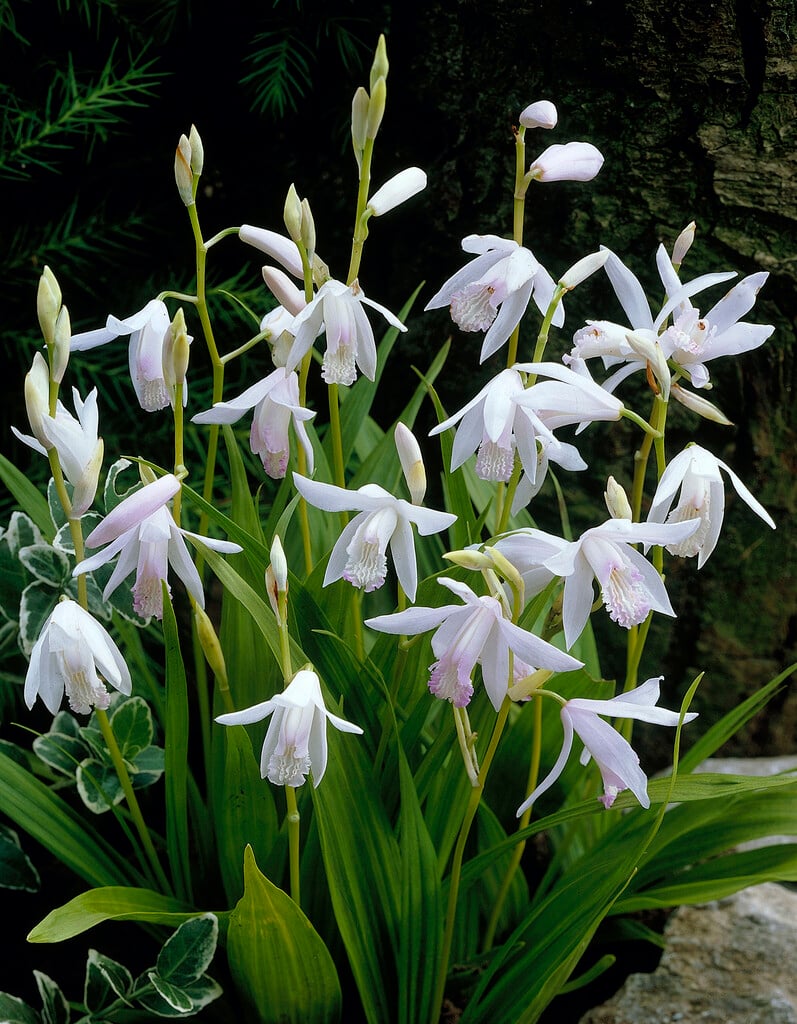Bletilla striata f. gebina
white-flowered Chinese ground orchid
A hardy terrestrial (ground dwelling) orchid with flattened pseudobulbs and wide, lance-shaped, corrugated, green leaves. From spring to early summer it produces starry, white flowers, 2.5cm (1in) across, with a characteristic pale lilac lip.
Synonyms
Bletilla striata var. japonica f. gebinaBletilla striata alba
see moreBletilla striata white-flowered
Bletilla striata var. japonica alba
Size
Ultimate height
0.1–0.5 metresTime to ultimate height
2–5 yearsUltimate spread
0.5–1 metresGrowing conditions
Moisture
Moist but well–drainedpH
Acid, Alkaline, NeutralColour & scent
| Stem | Flower | Foliage | Fruit | |
| Spring | White Purple | Green | ||
|---|---|---|---|---|
| Summer | White Purple | Green | ||
| Autumn | ||||
| Winter |
Position
- Partial shade
Aspect
East–facing or North–facing or West–facing
Exposure
Sheltered Hardiness
H4Botanical details
- Family
- Orchidaceae
- Native to GB / Ireland
- No
- Foliage
- Deciduous
- Habit
- Clump forming
- Genus
Bletilla are deciduous terrestrial perennial orchids with tuber-like pseudobulbs, ribbed, linear to lance-shaped leaves, and erect racemes of bell-shaped flowers
- Name status
Correct
- Plant range
- Japan
How to grow
Cultivation
Under glass, grow in peat-free, loam-based potting compost with additional leaf mould, in bright filtered or bright indirect light. In summer, water liberally, applying a quarter-strength fertiliser every third watering. Keep dry in winter. Outdoors, grow in moist, well-drained humus-rich soil in a sheltered site, and provide partial shade in summer. Mulch in winter, or alternatively, lift and store in a dry and frost-free place.
Propagation
Propagate by division in early spring.
Suggested planting locations and garden types
- City and courtyard gardens
- Cottage and informal garden
- Low Maintenance
- Flower borders and beds
Pruning
No pruning required. Remove withered leaves in autumn or late winter.
Pests
May be susceptible to glasshouse red spider mite, glasshouse whitefly, aphids and mealybugs.
Diseases
Generally disease-free
Get involved
The RHS is the UK’s gardening charity, helping people and plants to grow - nurturing a healthier, happier world, one person and one plant at a time.
